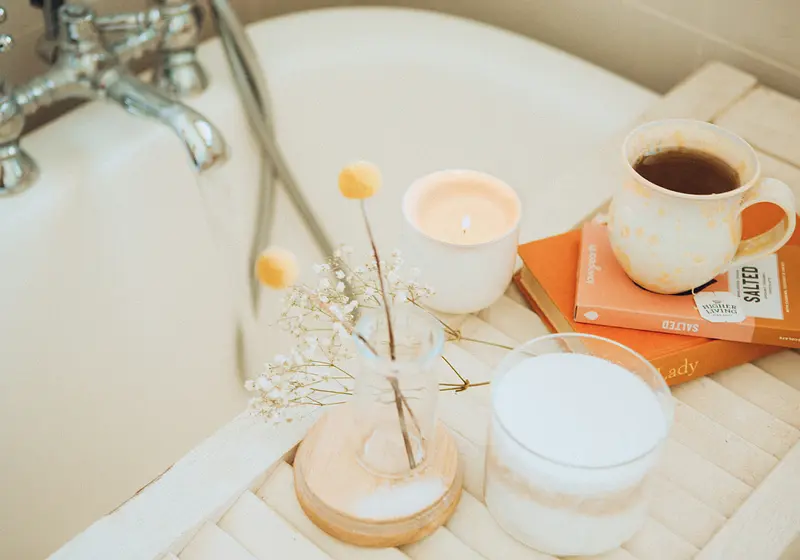In a world where glossy ads and influencer-endorsed skincare packages reign supreme, the message seems loud and clear: self-care is a luxury affair. When modern marketing tells you that self-care comes with a price tag, is this really the only way to nurture ourselves?
In recent years, the concept of self-care has been hijacked by consumer culture, bombarding us with products and services that claim to be essential to our well-being. Teenagers are the biggest victims of these marketing campaigns, and these advertisements distract us from what self-care truly is – the practice of individuals looking after their physical and mental health.
Self-care is about prioritizing and taking time for yourself. This can be as simple as journalling, getting good sleep, exercising, or meditating – these are all activities that help with our stress, focus, and mood.
On the other hand, the services and products that companies advertise such as a spa treatment, skincare regimen, or shopping spree are often superficial or experiences for temporary pleasure.
Skincare is one of the most popular self-care examples. Take this mask pack by FREEMAN. The mask pack advertises itself by placing phrases such as “relieve stress” and “Chill Self Care Skincare” in the title. The aesthetic packaging and fun-colored branding deliver the message that the mask will not only hydrate your skin but also help with managing stress and self-care.
However, I beg to differ: I promise you that no face mask can mitigate the stress factors in your life. We should be met with the realities of these experiences: this face mask is essentially just a damp piece of fabric slapped onto your face for 20 minutes – it's hardly the transformative or relaxing experience it's made out to be.
This isn't to say that teenagers shouldn't engage in these activities, whether it be a 20-minute face mask or a full-on shopping spree. Instead, we need to be mindful of our intentions with them. Sure, they're fun to participate in once in a while, but these lavish experiences aren't exactly the most affordable, effective, or sustainable. Self-care is about achieving balance in your life, and the activities you engage in for your well-being should also reflect that balance.
With all this said, how are we being influenced by advertisements?
Our social media feeds are constantly bombarded with images of ideal lifestyles and wellness routines. Whether it be a fitness influencer's extremely consistent and intense fitness routine, a celebrity's pricey and extensive skincare collection, or an aesthetic short video of an influencer on vacation, self-care becomes another benchmark for perfection.
With the average screen time of teenagers being 7 hours and 22 minutes per day, it is no surprise that we are constantly exposed to and impacted by these expectations. This constant stream of "ideal" scenarios pressures us to question whether we are doing self-care "right," turning it into yet another metric for comparison.
I can't emphasize enough how harmful this is.
Consumerism and the misinformation it portrays are distorting the one practice we have to support and nurture us, into a competitive and stressful endeavor. As much as the media would like to portray it, there is no “one right way” to take care of yourself; especially not by spending money and buying your way into relaxation.
Instead, self-care is a commitment to ourselves to make choices that are good for our well-being. It is deeply personal and evolves based on our needs, preferences, and circumstances. Find what genuinely helps you feel better, more balanced, and healthier – something that replenishes your energy levels.
Don't let consumerism ruin your self-care. Your relationship with yourself and your mental and physical health is the one thing that you have, so don't sacrifice it by falling under these pressures of comparison. I urge you to reclaim self-care, and ultimately, just do what feels good to you.















.jpg)